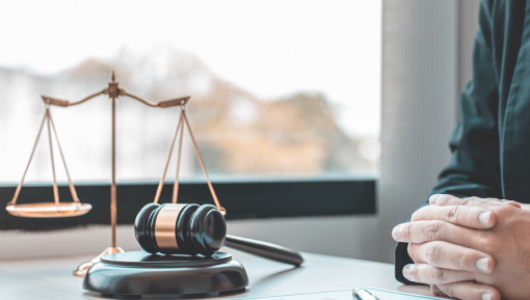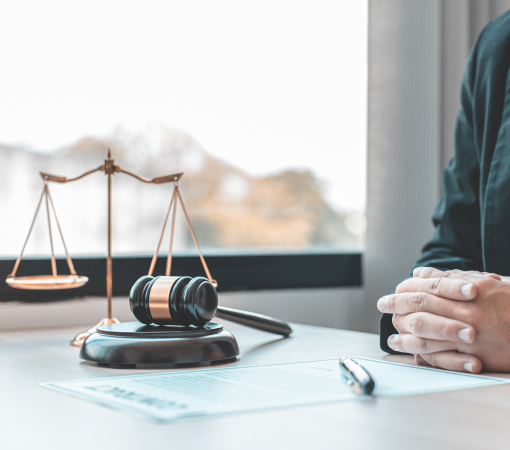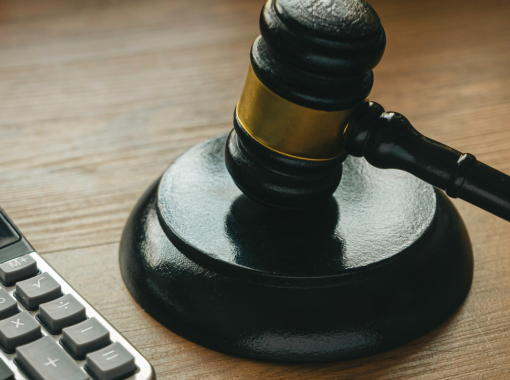Have you been charged with Obtaining Drugs of Dependence by False Representation?
- Over 30 years experience in the criminal justice system
- Track record of success
- Nationally acclaimed expertise
Free Legal Advice 24/7
-
Ice Epidemic in Victoria
-
Unauthorised Possession of Poison or a Controlled Substance
-
Manufacturing Heroin
-
Trafficking a Drug of Dependence in a Large Commercial Quantity
-
Possession of a Substance, Material, Documents or Equipment for Trafficking in a Drug of Dependence
-
Trafficking a Drug/s of Dependence in a Commercial Quantity
-
Trafficking a drug/s of Dependence to a Child
-
Trafficking a Drug/s of Dependence
-
Supplying a Drug/s of Dependence to a Child
-
Possession of Tablet Press
-
Possession of Chemical Precursor Chemicals
-
Cultivation of Narcotic Plants of a Commercial or Large Commercial Quantity
-
Cultivation of Narcotic Plants
-
Drug of Dependence into the Body of Another Person
-
Obtaining Drugs of Dependence by False Representation
-
With Use or Possession of a Drug of Dependence
What does it mean to be charged with Obtaining Drugs of Dependency via False Representation?
Section 78 of the Drugs, Poisons and Controlled Substances Act 1981 (Vic) (“DPCSA”) outlines the offence of obtaining drugs of dependence via false representation. This provision makes it illegal for a person to knowingly use false representation—whether verbal, written, or by conduct—to obtain or attempt to obtain a drug of dependence. The law targets deceitful practices used to acquire controlled substances, such as providing false information to medical professionals or pharmacists or inducing them to issue or dispense drugs unlawfully.
This offence covers various forms of deception used to improperly gain access to drugs of dependence, which are regulated due to their potential for misuse and harm.
What does False Representation mean?
To obtain drugs of dependence via false representation means to acquire or attempt to acquire a controlled substance through deliberate deceit. This can occur in various forms, including making false statements, providing incorrect information, or engaging in deceptive behaviour to convince someone authorised under the law—such as a doctor, pharmacist, or other licensed professional—to supply or prescribe drugs of dependence.
The law covers several specific actions under this offence:
- Obtaining or attempting to obtain a drug of dependence from someone who is licensed or authorised to sell or distribute it, such as a pharmacist.
- Obtaining or attempting to obtain a prescription or order for the drug from a registered medical professional, like a doctor, dentist, or pharmacist, through false representation.
- Causing or attempting to cause a registered medical professional to administer the drug, whether by injection or another method.
- Causing or attempting to cause a pharmacist to dispense a drug, knowing the prescription or order for the drug was obtained unlawfully.
Each of these acts involves knowingly using false information or fraudulent behaviour to improperly access drugs of dependence, which are tightly regulated due to their potential for abuse.
What is a Drug of Dependence?
A drug of dependence is defined in Section 4 of the Drugs Act and can include heroin, cannabis, cocaine, ecstasy, amphetamine, steroids, LSD, methamphetamines, ICE, ketamine etc.
What must the prosecution prove?

To secure a conviction under Section 78 of the DPCSA the prosecution must prove the following elements:
- You knowingly used false representation—whether oral, written, or through conduct—to obtain or attempt to obtain a prescription for a drug of dependence.
- You knowingly used false representation—whether oral, written, or through conduct—to cause or attempt to cause a medical practitioner to provide a prescription for a drug of dependence.
- You knowingly used false representation—whether oral, written, or through conduct—to cause or attempt to cause a medical practitioner to supply a drug of dependence.
Each element requires proof that the defendant intentionally engaged in deceptive behaviour to access controlled substances unlawfully.

What is the penalty for using False Representation in order to obtain a Drug of Dependence?
The maximum penalty for obtaining drugs of dependence by false representation under Section 78 of the DPCSA is either:
- A fine of up to 20 penalty units, or
- Level 8 imprisonment, which carries a maximum sentence of 1 year, or
- Both a fine and imprisonment.
Where Will My Case Be Heard?
Cases involving the offence of obtaining drugs of dependence through false representation are typically heard in the Magistrates’ Court.
Factors and Defences to consider?

Did you intentionally or knowingly use false representation in order to obtain drugs of dependence?
- What type of behaviour did you use as false representation- written, oral, or conduct?
- Did you have a legitimate medical condition or prior prescription history?
- Do you have any prior convictions of a similar nature?
- What was the drug of dependence you sought?
- Is that substance considered a drug of dependence according to the Act?
- Do you have any mental impairment which contributed to the offence in question?
- Can the prosecution prove beyond reasonable doubt that you used false representation in order to obtain a drug of dependence?

-
Ice Epidemic in Victoria
-
Unauthorised Possession of Poison or a Controlled Substance
-
Manufacturing Heroin
-
Trafficking a Drug of Dependence in a Large Commercial Quantity
-
Possession of a Substance, Material, Documents or Equipment for Trafficking in a Drug of Dependence
-
Trafficking a Drug/s of Dependence in a Commercial Quantity
-
Trafficking a drug/s of Dependence to a Child
-
Trafficking a Drug/s of Dependence
-
Supplying a Drug/s of Dependence to a Child
-
Possession of Tablet Press
-
Possession of Chemical Precursor Chemicals
-
Cultivation of Narcotic Plants of a Commercial or Large Commercial Quantity
-
Cultivation of Narcotic Plants
-
Drug of Dependence into the Body of Another Person
-
Obtaining Drugs of Dependence by False Representation
-
With Use or Possession of a Drug of Dependence
Testimonials
What people Say
St Kilda, Victoria 3182
1800 130 120
-
We would like to sincerely thank Ashleigh for her invaluable assistance and support throughout his's recent legal matter. Her professionalism, ex... Read MoreWe would like to sincerely thank Ashleigh for her invaluable assistance and support throughout his's recent legal matter. Her professionalism, expertise, and dedication were incredibly reassuring during a very challenging time. Ashleigh took the time to guide us with clarity and care, and we truly felt supported every step of the way. We are deeply grateful for her efforts and commitment, and we highly recommend her to anyone seeking legal support. Thank you again, Ashleigh — wishing you continued success and good health. Read Less55/5
-
Thanks Marcus Denning for being with me from start to end and to give me a fantastic outcome from my trial..👏👏👏🎖🎖🎖🎖🎖🎖Fi... Read MoreThanks Marcus Denning for being with me from start to end and to give me a fantastic outcome from my trial..👏👏👏🎖🎖🎖🎖🎖🎖First time getting charged, didn't know what to do. I was like a fish out of water. Started to research some law firms and mk law popped did some background checks and found good info about the firm. So I stuck with them and i don't regret nothing about my experience with mk law..... Read Less55/5
-
I recently used the services of Marie Lukic of MK law. She is very professional, dedicated and knowledgeable lawyer. Extremely grateful to have Ma... Read MoreI recently used the services of Marie Lukic of MK law. She is very professional, dedicated and knowledgeable lawyer. Extremely grateful to have Marie who did exceptional job. I would highly recommend Marie Lukic of MK law firm. 👍 Read Less55/5
-
Marie Lukic defended me and l couldn’t be happier with the results, she listened too what l said and was able too put in her words too get me th... Read MoreMarie Lukic defended me and l couldn’t be happier with the results, she listened too what l said and was able too put in her words too get me the best results. She’s a fighter and goes into battle for her client 5 stars l highly recommend her thanks Marie Read Less55/5
What to Do Next?
After being charged with Using false representation in order to obtain Drug/s of Dependence, the next step is to seek legal advice. At MK Law, we will guide you through the legal process and provide tailored advice on your options moving forward. Our team will assess your case, review the charges, and examine the evidence to identify any strengths or weaknesses in the prosecution’s case. We will clearly explain your legal rights, potential defences, and the penalties you may face.
Additionally, we will discuss your plea options, whether it’s pleading guilty or contesting the charges, and help you understand any potential plea bargains. If you choose to defend the charges, we will work closely with you to prepare a strong defence strategy, which includes gathering evidence, challenging the prosecution’s case, and exploring all possible defences. We can also negotiate with the prosecution for reduced charges or penalties if appropriate. If your case proceeds to trial, MK Law will represent you in court, advocating for the best possible outcome while ensuring your rights are protected throughout the entire process. Call 1800 130 120 for confidential expert advice today.
Free Legal Advice 24/7
Contact Us
Call Anytime For Free Legal Advice 24/7
Top 5 firms by reputation dealing with traffic and criminal law matters.
- 2/212 Barkly Street, St Kilda Victoria, 3182 Australia
- 1800 130 120
- marcus@mklawfirm.com.au